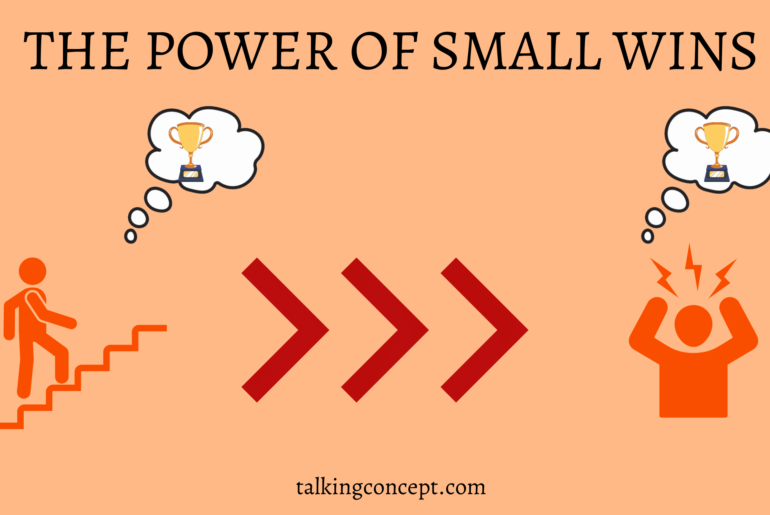I am pretty average at most of the things I do. Be it writing blogs or in my professional job or handling my personal responsibilities, I can fulfill that well, and that I know. If exceptionalism is to be considered, then I guess “Creating memes about myself” would be something I can say I am extremely good at, or to be more precise something exceptional at. (Just for fun!) But even if I might be exceptional at one task, there is a high probability that I am average or below average in most other tasks. That’s how we humans are designed, isn’t it?
We cannot be exceptional or the best in everything. But still, many of us have to face this burden of being exceptional at something or perfect at some other thing because of the rising competition all around. And considering the survival of the fittest rule, what will become of those who are not the strongest but also not the weakest? Will the weaker ones be eliminated?
What is Exceptionalism?
Exceptionalism refers to the belief or idea that a particular nation, culture, or individual is exceptional or superior in some way, often due to unique qualities, achievements, or circumstances. It can also refer to the belief that a group or an individual has a special destiny, mission, or responsibility.
Meerab was an exceptional student according to her teachers and parents. She grew up believing she was destined for greatness and that average was not good enough. However, as she entered adulthood, the burden of exceptionalism took a toll on her mental health. On being rejected many a time, she felt like she could never live up to the expectations placed upon her and constantly felt anxious and depressed.
Exceptionalism is screwing up a lot of people’s expectations for themselves. The inundation of the exceptional makes us feel worse about ourselves. It makes us feel as if we need to be more extreme, more radical, more efficient, and more self-assured to get noticed or even matter. Not only do we feel subjected to unsolvable problems, but we feel like losers. A simple Google search and we find millions of people without those problems, then why anyone would consider us?
The drawbacks of exceptionalism
We live in the Information age. We have been conditioned to believe that exceptionalism is the order and culture to get ahead in life. There is unhealthy competition out there to outdo one another. This breeds insecure and desperate people, who never feel good enough regardless of their titles, certifications, or social status, with the constant need to oppress another to feel in control and powerful.
The burden of exceptionalism, however, has always been linked to feeling stressed. When people set high expectations for themselves, and in case they are not able to meet those expectations, it breaks them. The constant need to excel in each and every field and stand out from the crowd, the desperation to achieve more than the others, can lead to high levels of burnout and even depression.
The above statement was for those who believe they are mediocre and cannot be exceptional. Now suppose you know someone who is exceptionally good at so many things. She has always been a topper, she is wealthy, and she can even dance, cook and paint perfectly. But when one believes they are exceptional, they may become arrogant, dismissive of others, and lose sight of the importance of cooperation and collaboration. They may be less inclined to listen to others or take their experiences into account. This can lead to strained relationships and a lack of understanding between people.
Breaking free from this tyranny of exceptionalism
Every day we are flooded with the extraordinary, either the best of the best or the worst of the worst. The greatest achievement, the funniest gossip, the most upsetting news, the scariest threats. It seems we are at the extremes-always.
Yet the vast majority of life resides in the middle line. The vast majority of life is un-extraordinary, indeed quite average.
There is no need for a violin to belittle a guitar or vice versa, as they are both musical instruments that serve different purposes and appeal to different audiences. The violin produces a high-pitched, lyrical sound that’s often used in classical music, while the guitar produces a rich, versatile sound that’s often used in popular music. Each instrument has its own unique qualities and should be appreciated for what it brings to the world of music. There’s no need for one to feel superior or inferior to the other, as they both have their place in the comity of musical instruments.
How to deal with this burden of exceptionalism?
- When we compare two things or individuals, it’s crucial to maintain a neutral viewpoint. We mustn’t prioritize one thing or person over the other. (Read here to know how to stop comparing)
- It’s a common human tendency to reject anything that we do not understand. We must avoid such prejudiced rejections and try to understand and learn more about things that seem alien to us.
- Empathy is the key: To understand things better, we must learn to empathize with the perspective of others. It’s important to consider how it would feel not to know, to understand, or to be in a particular situation.
- Diverse perspectives: Every individual sees the world differently based on their experiences, upbringing, and culture. It’s important to consider these diverse perspectives while comparing or making judgments.
- Open-mindedness: Adopting an open-minded approach is critical when considering diverse perspectives. This approach helps us to listen, learn, and grow from different viewpoints.
CONCLUSION
Being average has become a new standard of failure. As a result of which, a lot of people are afraid to accept mediocrity. Consequently, this sort of thinking proves to be dangerous for them.
We are all creative, innovative, unique, and legitimately exceptional but not in the same area of interest. And we should be okay with that. Each one of us can solve a particular problem, according to our strengths. We must not continue to allow the flood of information to make us greedy enough to lose sight of the need for wisdom.
People who become great at something are great because they know and understand that they are mediocre, they are average and they could do much better.
Discover more from talkingconcept.com
Subscribe to get the latest posts sent to your email.




